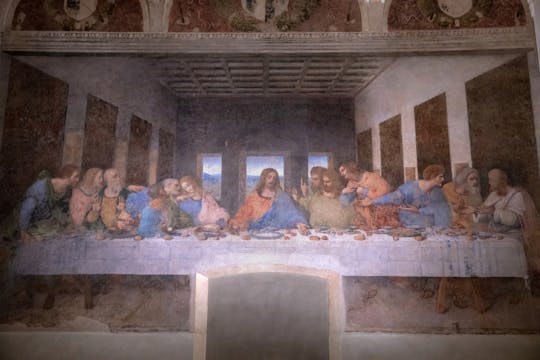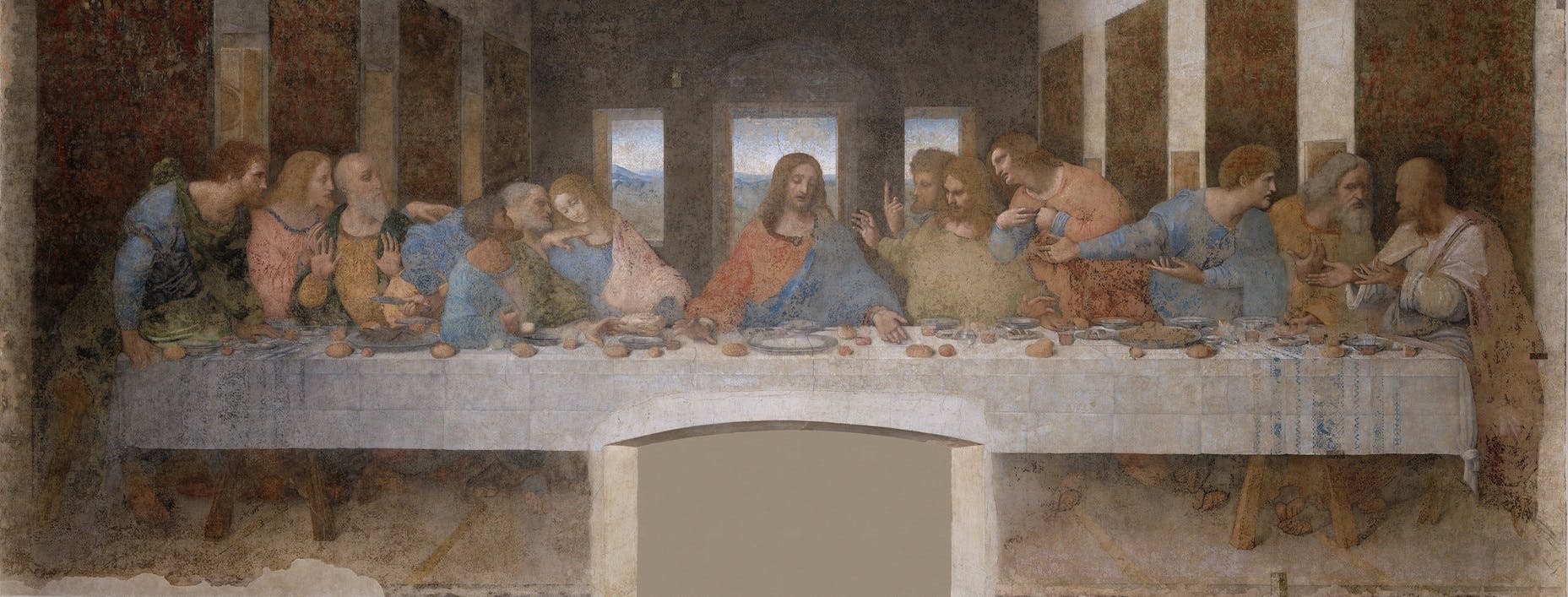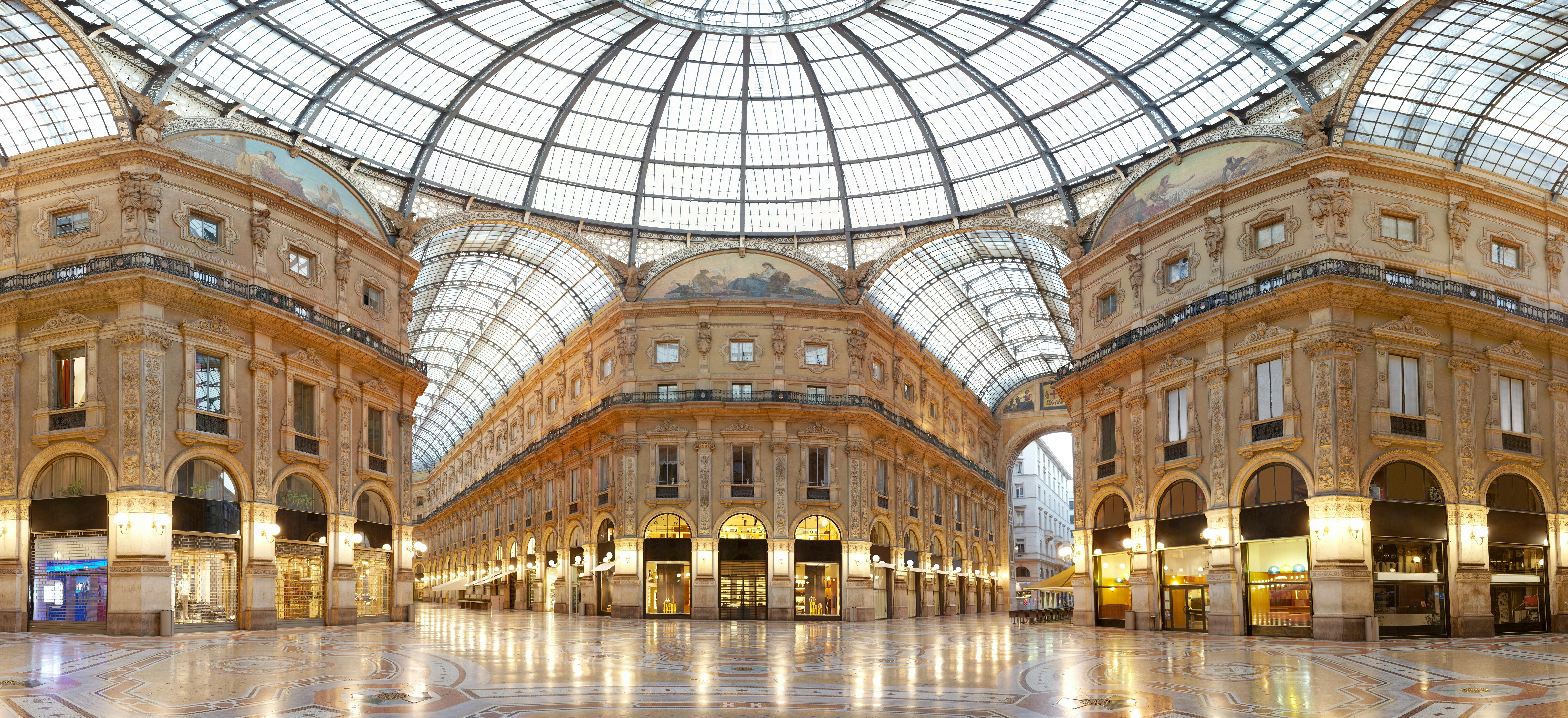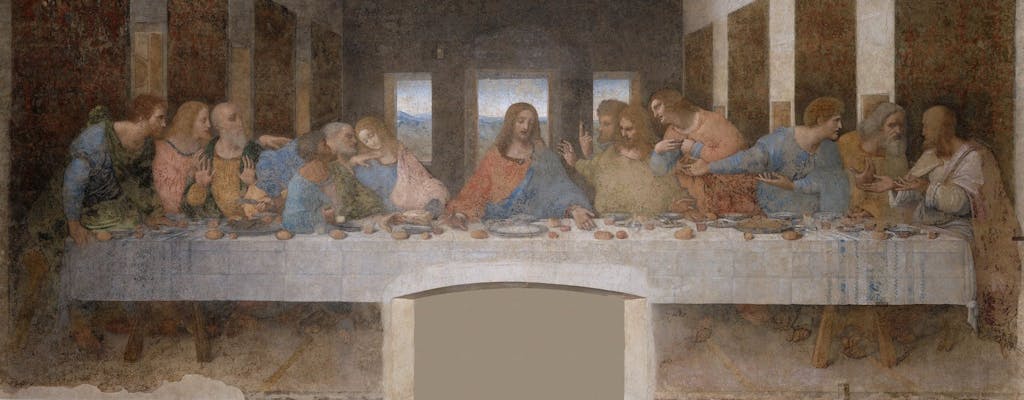Things to do in Leonardo's Last Supper
The survival of Leonardo’s masterpiece is almost as amazing as its vision. It was already being ‘restored’ in 1726, with an ill-advised application of caustic solvents and varnish. In 1770, Giusseppe Mazza repainted much of the original in oil. In 1853, Stefano Barezzi tried to detach the painting from the wall but failed and instead glued the paint fragments to the base.
Only in 1903 was it discovered that the painting was done in tempera, not oil, and its surface was cleaned accordingly. A bomb nearly destroyed the refectory in 1943, but the work was successfully cleaned of mildew and lightened in 1947.
Modern restoration showed that the historical over-painting was eating the original and causing it to flake. The decision was therefore made to remove everything added to the mural since it was completed in 1498 – an extremely time-consuming microscopic task using advanced technology. Today, the painting is preserved by an air-filtration system, a monitored environment, and dust-filtering technology. Visitors are limited to 25 people for 15 minutes each time.
Opening times
- 8.15am-6.45pm – Tuesday to Sunday
- CLOSED: Mondays and public holidays 1 January, 1 May, 25 December
About The Last Supper
Duke Ludovico Sforza of Milan was behind the creation of Leonardo da Vinci’s masterpiece The Last Supper. The Duke had adopted Santa Maria delle Grazie as his court church and wanted to decorate it in a manner that reflected his wealth and power. This meant a great painting by a great artist.
Leonardo began work in 1495 on the northern wall of the refectory and completed the painting three years later, the complete image measuring 4.5x8.8m (15x29ft). Contrary to popular belief, it was not a fresco, which required fast and decisive work before the wet plaster dried. Leonardo liked to take his time and change his mind, so he designed a new kind of application using tempera (an egg-based paint).
Alas, the great genius Leonardo made a mistake this time. His base for the painting included pitch and mastic, which did not bond the pigment as well or as permanently as he had hoped. The aesthetic considerations, however, were sublime. Leonardo created his amazing illusions of perspective using a nail in the wall and strings radiating from it to ensure that all would be correct
The subject was a common one in churches, but Leonardo’s innovation was to create a sense of drama and movement by portraying the exact moment when Jesus announced that one of his disciples would betray him. What we see is a radiating wave of shocked reaction. He also chose to portray all attendees in a straight line so that each could receive due attention.
It’s said that the faces in the work are based on real people known to the artist. Judas may have been a real-life local prisoner or criminal and, here, Leonardo puts him among the others rather than separate (as traditional dictated). Judas is the only one who seems not to be outraged or surprised.
Address
Piazza Santa Maria delle Grazie 2, Milan
Getting there
- By Metro: Line 2: Conciliazione
- By tram: Line 16: S Maria delle Grazia
Our recommendations in Leonardo's Last Supper

Leonardo da Vinci's Last Supper guided tour with local expert guide
Book a guided tour of the Last Supper in Milan to discover the mysteries hidden behind one of the most important works ever!
en

Leonardo da Vinci's Last Supper guided tour with local expert guide
Book a guided tour of the Last Supper in Milan to discover the mysteries hidden behind one of the most important works ever!
en
How to get there

Leonardo's Last Supper
Milan
Italy
Reviews Leonardo's Last Supper
“This was our second visit to the Last Supper - I particularly enjoyed this brief and informative tour. No messing about just straight to the point and then the viewing. Brilliant.”
“Don't miss "The Last Supper", if you miss out on tickets direct from the Saint Maria delle Grazie Church, then don't despair, you can book tickets with Musement. They prices are slightly more but you have the advantage of having a guide (who was excellent) who will explain the painting in more detail which really added to the whole experience.”
“Our family enjoyed our tour of the Last Supper. You are only allowed 15 minutes to view the painting so it works out well to have the guide explaining the work while you move about and take photos or view it from different areas. Thank you for a memorable tour.”

